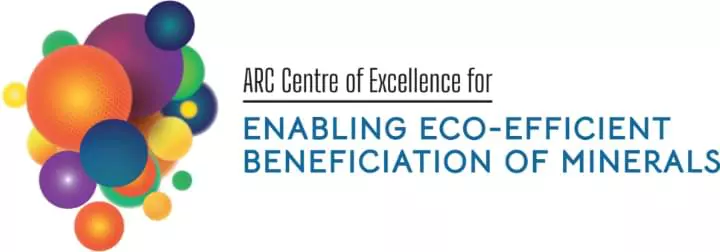6th March 2024
Article - Meet the "next generation researchers making mining more sustainable": COEMinerals PhD researchers feature on International Women's Day (IWD)
International Women’s Day, 8 March 2024: The next generation of researchers making mining more sustainable
The United Nations has announced this year’s theme for International Women’s Day is ‘Count Her In: Invest in Women. Accelerate Progress’. It highlights that when women are given equal opportunities to learn, earn and lead – entire communities thrive.
In this context, we’re proud to introduce two STEM researchers who are devoting their PhDs to solving challenges for the critical minerals industry – a sector that is playing a pivotal role in enabling the clean energy transition: PhD students and researchers Siân Parkes (Chemical Engineering) and Sonia Khandaker (Chemistry).
Diversity remains a challenge in STEM and the mining sectors in Australia, with women 37% of STEM course enrolments and making up only 11% of engineering sector employees as of 2022 and 22% of mining sector employees as of 2023.*
Both Siân and Sonia are impacting future change as a result of their careers choices, research discoveries, and active student and school outreach activities as part of their work with the highly diverse team at the The University of Newcastle-based ARC Centre of Excellence for Enabling Eco-Efficient Beneficiation of Minerals (COEMinerals).
The Centre’s scientific research is discovering inventive new ways to separate and recover more minerals and metals — including rare earth elements and critical minerals — using less water, less energy and creating less waste.
Other University of Newcastle PhD candidates are gaining industry insight and knowledge by working alongside industry at the Newcastle Institute for Energy and Resources (NIER) precinct using novel research and pilot-scale infrastructure alongside industry.
Have a few minutes? Siân and Sonia share more about their research and what drives their passion for future change in these short videos below.
Sonia Khandaker, PhD Chemistry candidate and COEMinerals Researcher, University of Newcastle
Watch Sonia explain her research in three minutes here.
Download Sonia’s case study here.
Originally working in the area of water and waste management, Sonia expanded her ‘eco-efficiency’ focus towards improving minerals processing techniques with the COEMinerals team.
Sonia’s research involves developing and using bio-inspired “collector” chemicals to help recover valuable mineral particles. Her work may one day reduce or replace industry reliance on some of the more-harmful chemicals used in some minerals processing today.
Sonia’s chemistry specialisation enables her to analyse the adsorption of reversible addition−fragmentation chain-transfer (RAFT) polymeric collectors during “flotation” processes, which are used separate and recover specific minerals during the early stages of minerals processing.
“Every object has a unique chemistry, and everything on Earth is made of chemicals, and every day we are learning more about them.
“If you know the chemistry of a mineral, you can investigate new ways to use ingredients to separate the mineral from other particles.”
“The challenge of discovering, creating and using new chemicals to solve problems facing the world is fascinating,” Sonia said.
Siân Parkes, PhD Candidate in Chemical Engineering, University of Newcastle
Watch Siân explain her research in three minutes here.
Download Sian’s case study here.
Sian is passionate about making sustainability integral to minerals separation. She is a copper separation specialist, whose research is focused on recovering minerals with several clean energy techniques.
She’s also working with other researchers and organisations to optimise “froth flotation” recovery of critical metals using the REFLUX™ Flotation Cell (RFC), invented by Laureate Professor Kevin Galvin.
Siân also recently spent time in Germany on a project focusing on the recycling of lithium-ion batteries and semiconductors; testing biodegradable ingredients (reagents) to reduce the environmental impact of minerals processing and aims to take the process out of the lab and into the industry using the RFC™.
Siân actively inspires others to consider STEM study and careers, “because of the wide range of rewarding work they could become involved in, the problems they could help solve and for all of the opportunities open to them as a result”.
(Article replicated from NIER Newsletter / The LOOP : 6 March 2024: The next generation of researchers making mining more sustainable (sharepoint.com)
References:

